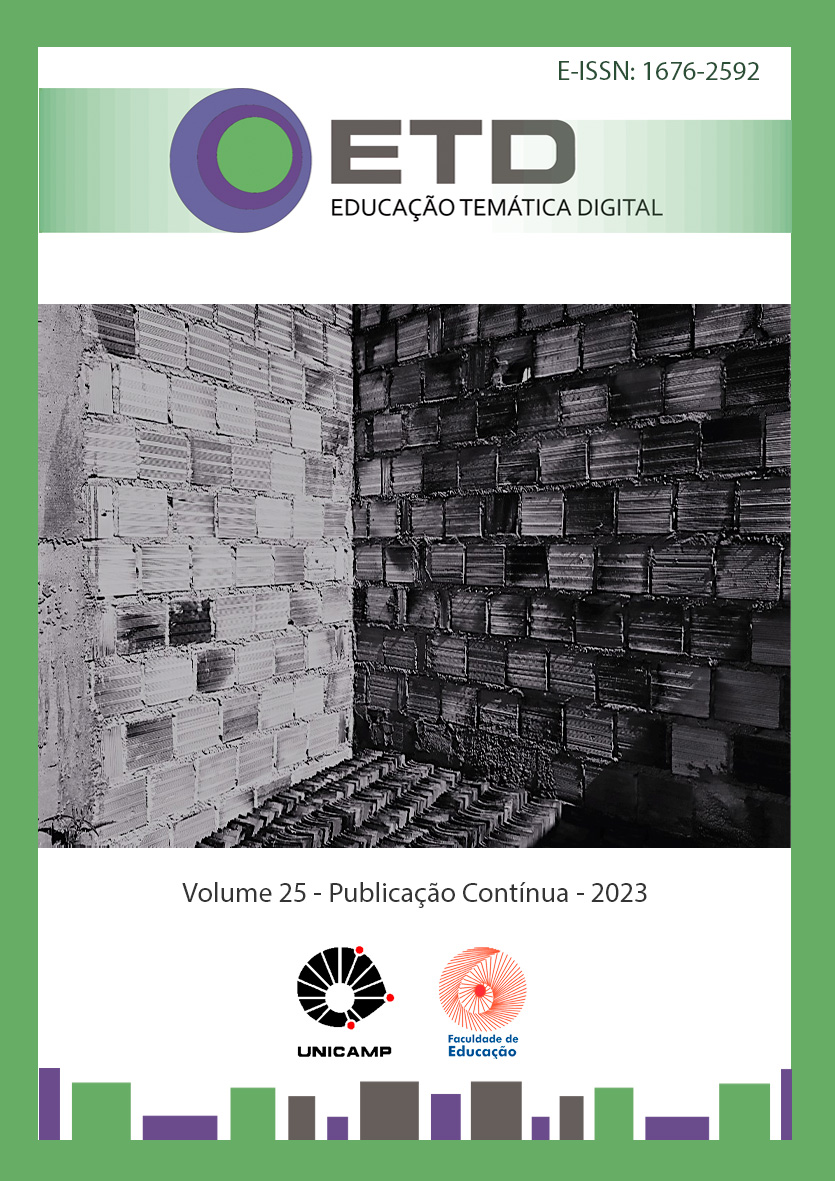Abstract
In recent years, content curation for distance education has become a frequent activity for teachers as well as for education managers and professionals. Within the field of information science, intersecting to the area of education, this article presents the perception of five stakeholders who work in Brazilian higher education in relation to the process of curing content for distance education: university professors, librarians, evaluators from the Ministry of Education, institutional managers of higher education (HEI) and EdTech managers. The methodology chosen is a descriptive survey with a quantitative approach of the survey type. The 29 questions asked were divided into six blocks: introductory, curated, pedagogical, technology, quality and final. The results show that, despite being understood as a new professional opportunity for teaching, curation needs to be better explored in the educational area. Its characteristics, processes and tools are not common knowledge of the HEI teams, nor are the quality indicators that should make up the process of curing content. Thus, the urgency manuals, models or guides that help curators of content for distance learning in the process is highlighted, observing the characteristics of the different teaching modalities and, mainly, detailing stages, in order to equip the professionals of educational area.
References
ABBOTT, Daisy. What is digital curation? Edinburgh: Digital Curation Centre, 2008. Disponível em: https://www.dcc.ac.uk/guidance/briefing-papers/introduction-curation/what-digital-curation. Acesso em: 23 mar. 2021.
ALEIXO, Mariana Romano; FERNANDES, Maria José Oliveira; COSTA, Gislaine; RIBEIRO, Soraia. O papel do gestor e curador da informação nos novos comportamentos informacionais. Perspectivas em ciência da informação, v. 25, n. 3, p. 49-62, set. 2020. Disponível em: https://periodicos.ufmg.br/index.php/pci/article/view/25512. Acesso em: 23 mar. 2021.
ASSOCIAÇÃO BRASILEIRA DE EDUCAÇÃO A DISTÂNCIA. Censo EAD.BR: relatório analítico da aprendizagem a distância no Brasil. Curitiba: InterSaberes, 2018. Disponível em: http://www.abed.org.br/arquivos/CENSO_EAD_BR_2018_digital_portugues.pdf. Acesso em: 23 mar. 2021.
BASSANI, Patrícia Scherer; WILBERT, Berta Taciana Brusius; MAGNUS, Emanuele Biolo. A curadoria digital on-line e o processo de formação do professor-autor: experiências de autoria em/na rede. Interfaces científicas, Aracaju, v. 6, n. 1, p. 93-106, out. 2017. Disponível em: https://periodicos.set.edu.br/educacao/article/view/4437/2491. Acesso em: 23 mar. 2021.
BHASKAR, Michael. Curadoria: o poder da seleção no mundo do excesso. Tradução de Érico Assis. São Paulo: Sesc, 2020.
CASTELLS, Manuel. A era da informação: economia, sociedade e cultura. Lisboa: Fundação Calouste Gulbenkian, 2002.
CASTELLS, Manuel. A sociedade em rede. São Paulo: Paz e Terra, 2003.
CORTELLA, Mario Sérgio; DIMENSTEIN, Gilberto. A era da curadoria: o que importa é saber o que importa! São Paulo: Papirus 7 Mares, 2015.
GARCIA, Marilene Santana Santos; CZESZAK, Wanderlucy. Curadoria educacional: práticas pedagógicas para tratar (o excesso de) informação e fake news em sala de aula. São Paulo: Senac, 2019.
GIVEN, Lisa. The sage encyclopedia of qualitative research methods. v. 2. Nova York: SAGE, 2008.
INSTITUTO NACIONAL DE ESTUDOS E PESQUISAS EDUCACIONAIS ANÍSIO TEIXEIRA. Instrumento de Avaliação de cursos de graduação: Presencial e a distância: Autorização. Brasília: INEP, 2017. Disponível em: https://download.inep.gov.br/educacao_superior/
avaliacao_cursos_graduacao/instrumentos/2017/curso_autorizacao.pdf. Acesso em: 27 jul. 2021.
LOPES, Daniel Queiroz; SOMMER, Luis Henrique; SCHMIDT, Saraí. Professor-propositor: a curadoria como estratégia para a docência on-line. Educação e linguagem, Porto Alegre, RS, v. 17, n. 2, p. 54-72, jul.-dez. 2014. Disponível em: https://www.metodista.br/revistas/
revistas-ims/index.php/EL/article/view/5331/4384. Acesso em: 23 mar. 2021.
MARCONI, Marina de Andrade; LAKATOS, Eva Maria. Técnicas de pesquisa. São Paulo: Atlas, 2018.
MATTAR, João. Metodologia científica na era digital. São Paulo: Saraiva, 2017.
PRODANOV, Cleber Cristiano; FREITAS, Ernani Cesar. Metodologia do trabalho científico: métodos e técnicas da pesquisa e do trabalho acadêmico. Novo Hamburgo: Feevale, 2013.
SILVA, Armando Malheiro; RIBEIRO, Fernanda. Das ciências documentais à ciência da informação: ensaio epistemológico para um novo modelo curricular. Porto: Afrontamento, 2008.
VIEIRA, Nathan. O que é edtech? Entenda de uma vez por todas. In: CANALTECH. [S. l.], 4 fev. 2020. Disponível em: https://canaltech.com.br/inovacao/edtech-o-que-e-159758/. Consulta em: 27 jul. 2021.

This work is licensed under a Creative Commons Attribution-NonCommercial-NoDerivatives 4.0 International License.
Copyright (c) 2023 ETD - Educação Temática Digital


